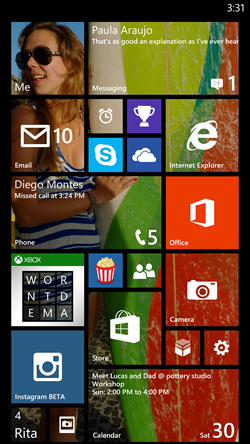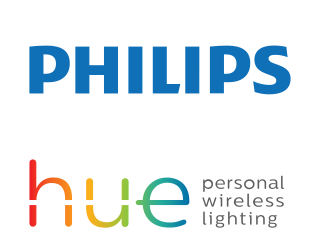Insteon is a proprietary home automation (domotics) system that enables light switches, lights, leak sensors, remote controls, motion sensors, and other electrically powered devices to interoperate through power lines, radio frequency (RF) communications, or both. It employs a dual-mesh networking topology in which all devices are peers and each device independently transmits, receives, confirm and repeats messages. Like other home automation systems, it had been associated with the Internet of things.
Withings is a French consumer electronics company headquartered in Issy-les-Moulineaux, France. It also has offices in Boston, Massachusetts, USA, and Hong Kong, and distributes its products worldwide. Withings is known for design and innovation in connected devices, such as the first Wi-Fi scale on the market, an FDA-cleared blood pressure monitor, a smart sleep system, and a line of automatic activity tracking watches. It also provides B2B services for healthcare providers and researchers.

Google Nest is a line of smart home products including smart speakers, smart displays, streaming devices, thermostats, smoke detectors, routers and security systems including smart doorbells, cameras and smart locks.

WEMO, a subsidiary of Belkin, are a series of products from Belkin that enable users to control home electronics remotely. The product suite includes electrical plugs, motion sensors, light switches, cameras, light bulbs, and a mobile app.

ecobee is a Canadian-founded home automation company that makes smart thermostats, temperature, and occupancy sensors, smart light switches, smart cameras, and contact sensors. They were acquired by the American company Generac Holdings in 2021.

Chromecast is a discontinued line of digital media players developed by Google. The devices, designed as small dongles, can play Internet-streamed audio-visual content on a high-definition television or home audio system. The user can control playback with a mobile device or personal computer through mobile and web apps that can use the Google Cast protocol, or by issuing commands via Google Assistant; later models introduced an interactive user interface and remote control. Content can be mirrored to video models from the Google Chrome web browser on a personal computer or from the screen of some Android devices.

The iPad Mini, known retrospectively as the iPad Mini 1, is the first generation of the mini tablet computer developed and marketed by Apple Inc. It was announced on October 23, 2012, as the fourth major product in the iPad line and the first of the iPad Mini line. It features a reduced screen size of 7.9 inches (20 cm), compared to the 9.7-inch (25 cm) display on standard iPads at that time.

Windows Phone 8.1 is the third generation of Microsoft Mobile's Windows Phone mobile operating system, succeeding Windows Phone 8. Rolled out at Microsoft's Build Conference in San Francisco, California on April 2, 2014, it was released in final form to Windows Phone developers on April 14, 2014 and reached general availability on August 4, 2014. All Windows Phones running Windows Phone 8 can be upgraded to Windows Phone 8.1, with release dependent on carrier rollout dates.

Cortana was a virtual assistant developed by Microsoft that used the Bing search engine to perform tasks such as setting reminders and answering questions for users.

HomeKit, also known as Apple Home, is a software framework and communication protocol developed by Apple Inc. that lets users configure, communicate with and control smart-home appliances using Apple devices. It provides users with a way to automatically discover such devices and configure them. By designing rooms, items and actions in HomeKit, users can enable automations in the home through a voice command to Siri or through Apple's Home app or third party apps. With HomeKit, developers are able to create complex applications in order to manage accessories at a high level.
Amazon Echo, often shortened to Echo, is a brand of smart speakers developed by Amazon. Echo devices connect to the voice-controlled intelligent personal assistant service Alexa, which will respond when a user says "Alexa". Users may change this wake word to "Amazon", "Echo", "Computer", and other options. The features of the device include voice interaction, music playback, making to-do lists, setting alarms, streaming podcasts, and playing audiobooks, in addition to providing weather, traffic and other real-time information. It can also control several smart devices, acting as a home automation hub.
Windows 10 introduced a number of new elements, including the option to use a touch-optimized interface or a traditional desktop interface similar to that of Windows 7 along with live tiles from Windows 8. However, unlike previous versions of Windows, where most, if not all, major features for that release were completed by its RTM, Windows 10 continues to receive major features and changes beyond its initial release to market. Microsoft describes Windows 10 as an "operating system as a service" that will receive ongoing updates to its features and functionality. This is supplemented with the ability for enterprise environments to receive non-critical updates at a slower pace, and to use long-term support milestones that will only receive critical updates, such as security patches, over their ten-year lifespan of support.
Garageio is a smart home garage door controller created by Alottazs Labs, LLC headquartered in Columbus, Ohio. Alottazs Labs, LLC is a privately held company founded in October 2012. Garageio is an Internet of Things product providing managed garage and gate access via a smartphone and other web-enabled devices.

The Nest Thermostat is a smart thermostat developed by Google Nest and designed by Tony Fadell, Ben Filson, and Fred Bould. It is an electronic, programmable, and self-learning Wi-Fi-enabled thermostat that optimizes heating and cooling of homes and businesses to conserve energy.
HomeSeer Technologies LLC is a technology company based in Bedford, New Hampshire, in the United States. HomeSeer makes home automation controllers and software, designed to integrate lighting, HVAC, security, AV and other subsystems in most homes. Additionally, the company maintains an online store of compatible home automation products and a free online community forum for users and dealers.

Google Nest, previously named Google Home, is a line of smart speakers developed by Google under the Google Nest brand. The devices enable users to speak voice commands to interact with services through Google Assistant, the company's virtual assistant. Both in-house and third-party services are integrated, allowing users to listen to music, control playback of videos or photos, or receive news updates entirely by voice. Google Nest devices also have integrated support for home automation, letting users control smart home appliances with their voice command. The first device, Google Home, was released in the United States in November 2016; subsequent product releases have occurred globally since 2017.
Myfox is a privately held French company that designs and produces connected, sensor-driven, and wireless home security equipment.

Wink is an American brand of software and hardware products that connects with and controls smart home devices from a consolidated user interface. Wink, Labs Inc., which develops and markets Wink, was founded in 2014 as a spin-off from invention incubator Quirky. After Quirky went through bankruptcy proceedings, it sold Wink to Flex in 2015. As of 2016, the Wink software is connected to 1.3 million devices. In July 2017, Flex sold Wink to i.am+ for $59 million.
Hive is a trademark owned by Centrica Hive Limited that produces smart home devices. It is one of the largest connected home providers in the UK and, as of May 2018, the company had more than 1,000,000 customers.

Philips Hue is a line of color-changing LED lamps and white bulbs which can be controlled wirelessly. The Philips Hue line of bulbs was the first smart bulb of its kind on the market. The lamps are currently created and manufactured by Signify N.V., formerly the Philips Lighting division of Royal Philips N.V.















